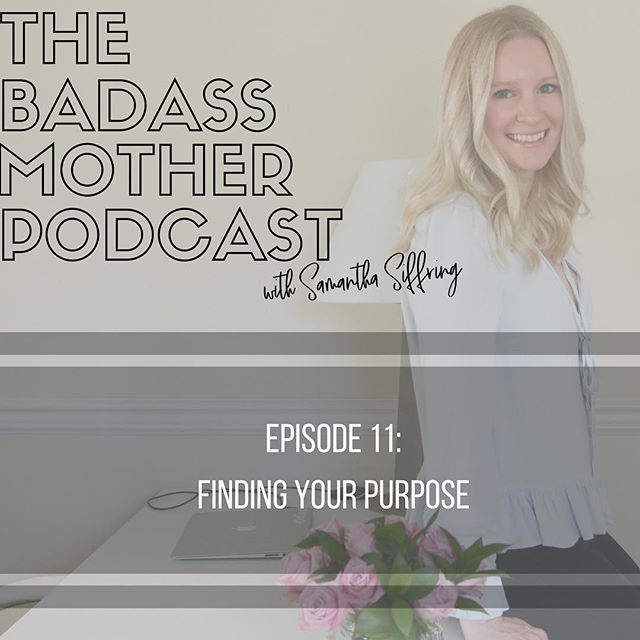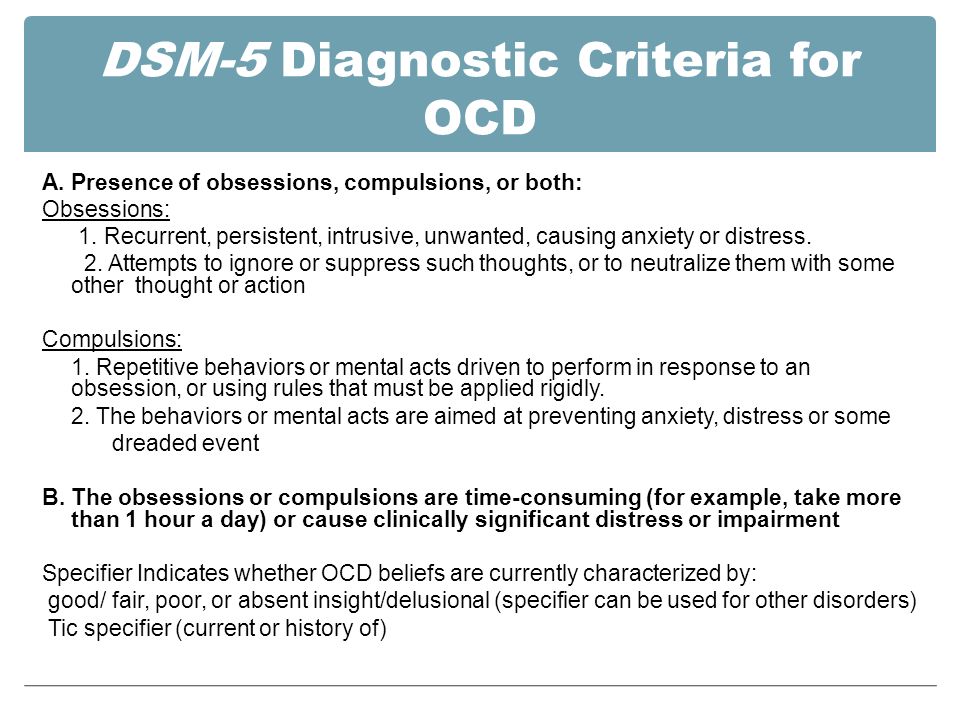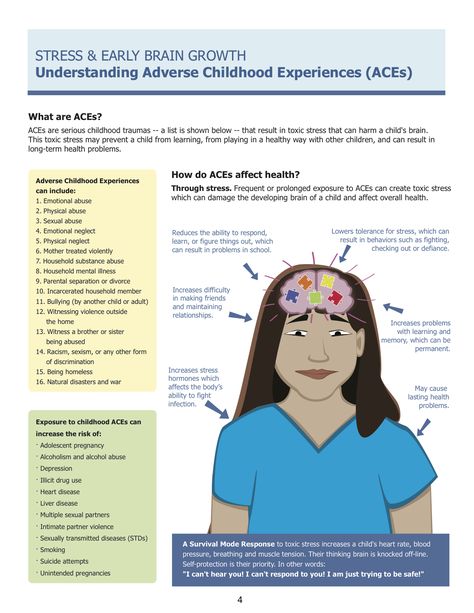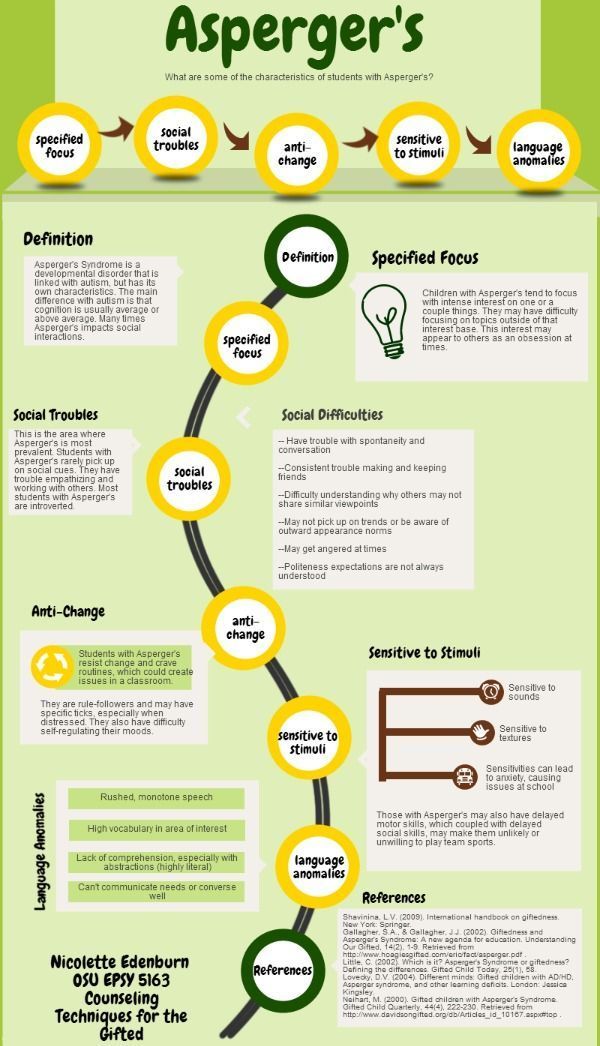How to get more confident
How to build self confidence | Confidence
Confidence can be a tough thing to build up. We've put together some handy tips to help you out. If you're still having a hard time even after trying these self-help ideas, don't worry! We’ve also listed the ways you can find extra support and work on boosting your confidence with the help of others.
What is a confident person?
Not everyone is born with an inbuilt sense of self-confidence. Sometimes it can be hard to develop confidence, either because personal experiences have caused you to lose confidence or because you suffer from low self-esteem.
A confident person:
- does what they believe is right, even if it’s unpopular
- is willing to take risks
- admits their mistakes and learns from them
- is able to accept a compliment
- is optimistic.
Tips for building self-confidence
There are a number of things you can do to build your confidence. Some of them are just small changes to your frame of mind; others you’ll have to work on for a bit longer to make them familiar habits.
1. Look at what you’ve already achieved
It’s easy to lose confidence if you believe you haven’t achieved anything. Make a list of all the things you’re proud of in your life, whether it’s getting a good mark on an exam or learning to surf. Keep the list close by and add to it whenever you do something you’re proud of. When you’re low in confidence, pull out the list and use it to remind yourself of all the awesome stuff you've done.
2. Think of things you're good at
Everyone has strengths and talents. What are yours? Recognising what you’re good at, and trying to build on those things, will help you to build confidence in your own abilities.
3. Set some goals
Set some goals and set out the steps you need to take to achieve them. They don’t have to be big goals; they can even be things like baking a cake or planning a night out with friends. Just aim for some small achievements that you can tick off a list to help you gain confidence in your ability to get stuff done.
Just aim for some small achievements that you can tick off a list to help you gain confidence in your ability to get stuff done.
4. Talk yourself up
You’re never going to feel confident if you have negative commentary running through your mind telling you that you’re no good. Think about your self-talk and how that might be affecting your self-confidence. Treat yourself like you would your best friend and cheer yourself on.
5. Get a hobby
Try to find something that you’re really passionate about. It could be photography, sport, knitting or anything else! When you’ve worked out your passion, commit yourself to giving it a go. Chances are, if you’re interested or passionate about a certain activity, you’re more likely to be motivated and you’ll build skills more quickly.
If you’re not feeling better
Sometimes the quick fixes don’t help in the long term. If you’re feeling bad and things just don’t seem to be improving, it’s worth talking to someone who knows how to help. Professionals such as counsellors and psychologists can help you develop strategies to help you build up your confidence. They may also be able to help you understand any underlying problems that might be causing you to feel bad about yourself.
Professionals such as counsellors and psychologists can help you develop strategies to help you build up your confidence. They may also be able to help you understand any underlying problems that might be causing you to feel bad about yourself.
Want to chat with a peer worker who can listen to you and support you? Book a free, text-based session with ReachOut PeerChat.
If you don't feel ready to speak to a professional, try taking a look at ReachOut Online Community. Talking out your worries with a supportive community of people who have been through similar situations can be a really helpful way to build your self-confidence.
What can I do now?
- Get personalised support for when you're feeling low with the ReachOut Nextstep tool.
- Remember that it takes time and persistence to build your self-confidence. Learn more about self-talk.
- Want to chat with a peer worker who can listen to you and support you? Book a free, text-based session with ReachOut PeerChat.

Explore other topics
It's not always easy to find the right place to start. Our 'What's on your mind?' tool can help you explore what's right for you.
What's on your mind?
10 Ways To Build Confidence
So many successful people credit their sense of self and their confidence to their success. But not many people really explain how to build confidence, or how to become confident. It's tricky, because confidence is built on different things, but overall it is built on choices and accomplishments that feed your passion, and that make you feel happy and proud of who you are. Discovering these things is one of the most worthwhile pursuits of you life. Here are 1o ways you can begin building your confidence:
1. Get Things Done
Confidence is built on accomplishment. If you achieve small and big goals, you're going to feel much better about yourself. It begins with your day-to-day goals, what do you need to accomplish today, and every day this week or three days this week to help meet your goal? If you accomplish the goals you set for every day, chances are you will begin meeting weekly and monthly goals, which brings you in range of your bi-annual and annual goals. Keep in mind that progress is incremental, and big changes do not happen overnight. You're going to feel like you can take a big project, and set an ambitious goal because you believe you can meet it. Set a goal for yourself, and go for it.
If you achieve small and big goals, you're going to feel much better about yourself. It begins with your day-to-day goals, what do you need to accomplish today, and every day this week or three days this week to help meet your goal? If you accomplish the goals you set for every day, chances are you will begin meeting weekly and monthly goals, which brings you in range of your bi-annual and annual goals. Keep in mind that progress is incremental, and big changes do not happen overnight. You're going to feel like you can take a big project, and set an ambitious goal because you believe you can meet it. Set a goal for yourself, and go for it.
2. Monitor Your Progress
The best way to reach your goals, big or small, is break them into smaller goals and to monitor your progress. Whether you're trying to get promoted, get a better job, get into graduate school, change careers, eat healthier or lose 10 pounds, the best way to know if you're making progress is to monitor it.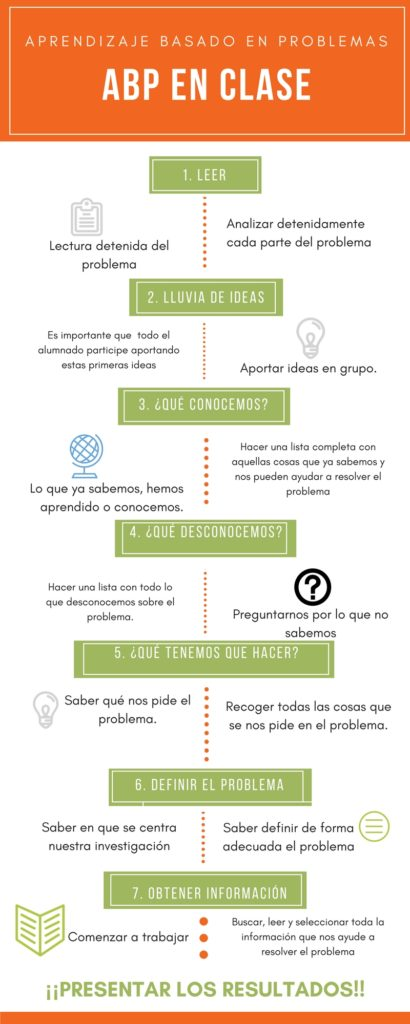 Try to quantify your accomplishments: the number of applications you're submitting to jobs or graduate schools, what you're eating and how much you're exercising, write down whatever your goal may be. It will help you stay on course, and you will build confidence as you see the progress you're making in real time.
Try to quantify your accomplishments: the number of applications you're submitting to jobs or graduate schools, what you're eating and how much you're exercising, write down whatever your goal may be. It will help you stay on course, and you will build confidence as you see the progress you're making in real time.
3. Do The Right Thing
Most confident people live by a value system and make their decisions based on that value system, even when it's hard and not necessarily in their best interest, but in the interest of the greater good. Your actions and your decisions define your character. Ask yourself what the best version of yourself that you aspire to be would do, and do it. Even when it's really hard and it's the last thing you want to do and it means a short-term sacrifice on your part, in the long run you're going to like yourself more and be prouder of who you are.
4. Exercise
Besides benefitting your health in general, exercising helps memory retention, improves focus, helps manage stress and prevents depression. It's harder to be anxious when there is no excess energy to draw upon, and outside of being difficult uncomfortable at times, exercise improves every aspect of your life. So stay active, and create time to take of yourself.
It's harder to be anxious when there is no excess energy to draw upon, and outside of being difficult uncomfortable at times, exercise improves every aspect of your life. So stay active, and create time to take of yourself.
5. Be Fearless
Failing isn't your enemy, it's fearing failure that truly cripples you. If you set big goals and have big dreams, you're going to feel overwhelmed, and you're inevitably going to feel like you can't do it. In those moments you have to look inside yourself, and gather every ounce of courage you have and just keep going. Every single wildly successful person has been afraid, and they've kept working and taking risks anyway, because what they are trying to accomplish is more important and urgent than their fear they will fail. Think about how much you want to achieve your goal, then put your fear to the side, and keep going, one day at a time.
6. Stand-up For Yourself
When your goal, project, etc. is in its early stages, and someone says that your goal is stupid, or that you can not do it, it's tempting to believe them because they're joining the chorus of doubts inside your head. Logically you think, "How can I be right when this person and all these doubts in my head are telling me I can't do this? That this idea is stupid." And you have to tell those people, especially the voices in your head, that they're wrong. You have it in you, so tell them you believe in your goal, you believe in yourself, so you're going to accomplish it. There's a great line in 10 Things I Hate About You, when Joseph Gordon-Levitt is about to give up his pursuit of Larisa Oleynik, and Heath Ledger gives him a pep talk, ending it with,"Don't let anyone, ever make you feel like you don't deserve what you want."
is in its early stages, and someone says that your goal is stupid, or that you can not do it, it's tempting to believe them because they're joining the chorus of doubts inside your head. Logically you think, "How can I be right when this person and all these doubts in my head are telling me I can't do this? That this idea is stupid." And you have to tell those people, especially the voices in your head, that they're wrong. You have it in you, so tell them you believe in your goal, you believe in yourself, so you're going to accomplish it. There's a great line in 10 Things I Hate About You, when Joseph Gordon-Levitt is about to give up his pursuit of Larisa Oleynik, and Heath Ledger gives him a pep talk, ending it with,"Don't let anyone, ever make you feel like you don't deserve what you want."
7. Follow Through
People respect people when they say they're going to do something and they do it.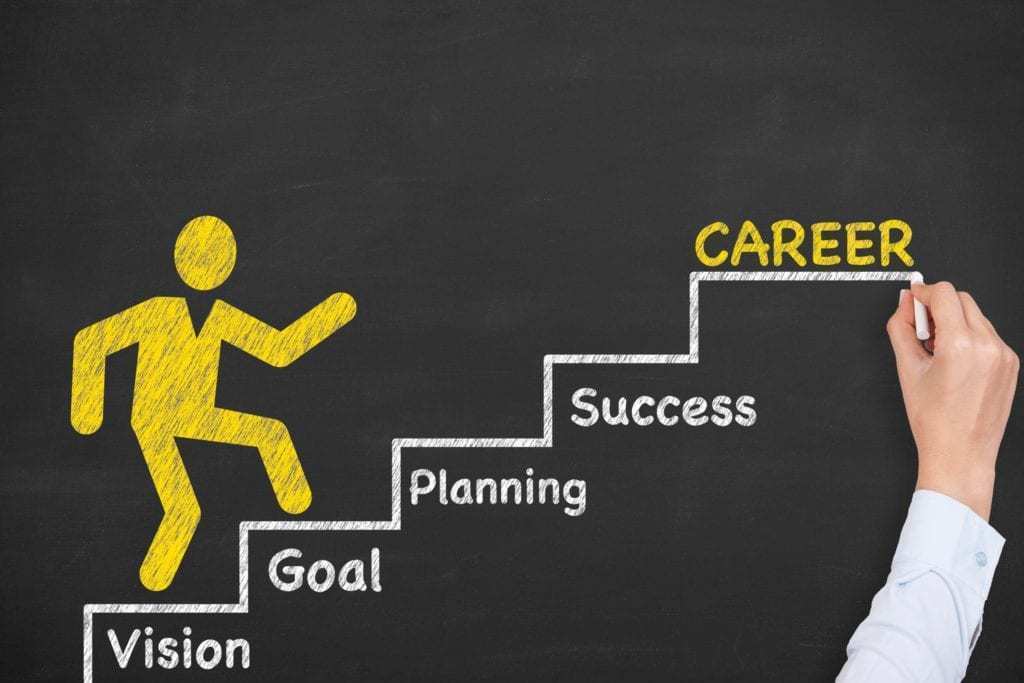 More importantly, you will respect yourself if you say you're going to do something and you do it, and belief in yourself will come easier, because you know you are not afraid of the work. Action gives your words meaning, and it will help you pave a path to accomplishing your goals, strengthening your relationships and feeling proud of who you are.
More importantly, you will respect yourself if you say you're going to do something and you do it, and belief in yourself will come easier, because you know you are not afraid of the work. Action gives your words meaning, and it will help you pave a path to accomplishing your goals, strengthening your relationships and feeling proud of who you are.
8. Think Long-term
The foundation of unhappiness is decisions made for short-term comfort that impede long-term goals: if you're trying to save money, you can't go out to eat as much, if you're studying for the GMAT or LSATs you can't go out with friends as often, if you're trying to lose weight, you can not eat french fries often, etc. Big goals require big sacrifices, you have to dig deep and really discipline yourself. In the moment it is tedious and frustrating and makes life significantly harder, but it will pay off, and the pride you feel will be worth it. You have to decide if your short-term comfort is more important than your long-term goals, but know that long-term goals will bring you far more happiness in the long run than your short-term comfort.
9. Don't Care What Others Think
There are going to be so many people who will tell you you can not accomplish your goal. Whether is it rejection from employers, schools, or just negative feedback from friends or family, people will try to tell you your goal is too big, or that you're not ready, or that you can't do it, that it's never been done before, etc., and you absolutely can not listen to them. You must be resolute. While they tell you the odds are against you, etc., just remember most people are wrong about most things. People change the world every day, despite everyone around them telling them it can't be done. If you think you can do it, you can it. Don't listen to them, believe in yourself and keep going.
10. Do More Of What Makes You Happy
What do you love to do in your spare time? Is it to get outside, hike, kayak and enjoy the outdoors? Or do you live for lying on your couch and watching all the excellent television that's available? Whatever it is you love, create space for it, because life is short- you need time to enrich your life and to recharge to be your best self.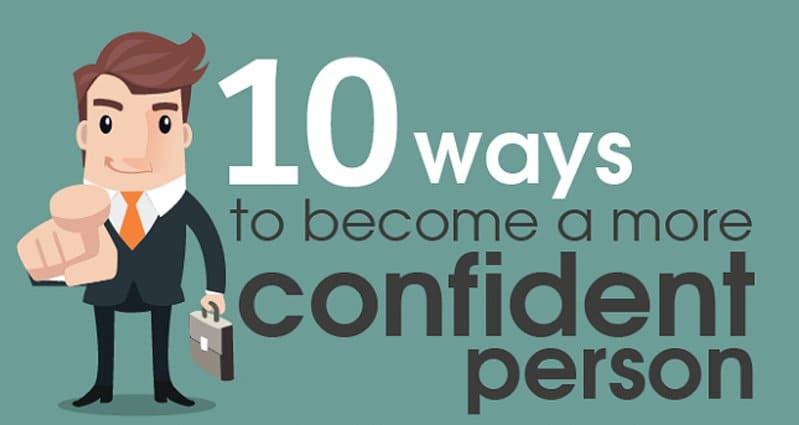
How to develop self-confidence: 10 useful tips
Confident people are not born, but become. Because self-confidence is not an innate quality, but rather a skill that you can develop on your own. How to do this and become more self-confident, advises Oksana Patselya, business coach, coach and career consultant.
What is self-confidence
Self-confidence is our own perception of ourselves, our capabilities and level of professionalism. It is expressed in the form of a positive assessment of one's own skills, abilities and strengths to achieve significant goals.
Healthy self-confidence is responsible for:
- determination,
- proactivity,
- persistent progress towards the goal,
- quality relationships with others,
- resilience to a wide range of communication
This does not mean at all that a self-confident person does not have a feeling of doubt and fear. On the contrary, he also doubts and also experiences fear and excitement when he starts something new, encounters obstacles, takes a step into the unknown. But he is helped by an inner strength - the very core that, relying on the accumulated experience, existing competencies and abilities, says: “Yes, it's not easy, but I can handle it. I will do my best and I will succeed.”
On the contrary, he also doubts and also experiences fear and excitement when he starts something new, encounters obstacles, takes a step into the unknown. But he is helped by an inner strength - the very core that, relying on the accumulated experience, existing competencies and abilities, says: “Yes, it's not easy, but I can handle it. I will do my best and I will succeed.”
Self-confidence ensures that you will succeed. Low confidence, on the contrary, causes missed opportunities and unfulfilled desires.
Self-confident people make useful acquaintances more easily, are more in demand in the professional field, move up the career ladder faster and easier.
How to Become Self-Confident: 10 Tips
Confidence is not necessarily an innate factor. Most often, this is the result of many years of hard work, the development of open thinking and good habits.
To develop self-confidence, you need desire, perseverance, consistency, and most importantly, your actions.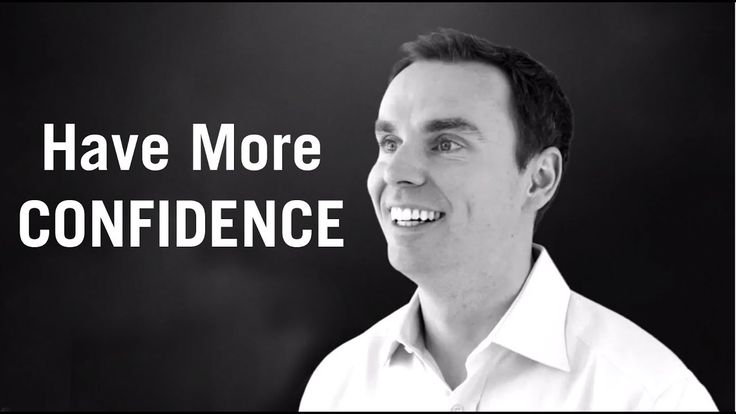 You can attend confidence building trainings, talk to subject matter experts, read articles and books. At the same time, your self-confidence will not grow even a millimeter if you do not make your own efforts.
You can attend confidence building trainings, talk to subject matter experts, read articles and books. At the same time, your self-confidence will not grow even a millimeter if you do not make your own efforts.
I have prepared 10 tips that will help you develop your self-confidence and keep it on a long-term basis. So that in the future you can confidently overcome emerging obstacles and recover faster in difficult situations.
1. Set goals for yourself
See also
👑
Tue, 18/08 Career
The measure of success: why KPIs are needed and how to calculate them
It's not about the goals that your boss/company/relatives sets for you. In any area of life, you should have your own goals that you will embody. Not necessarily global, but important and valuable to you at a particular moment. Having realized one, formulate a new goal. Raise your bar every time so that it takes effort to achieve it: develop skills, learn something new, change the usual behavior pattern, introduce good habits.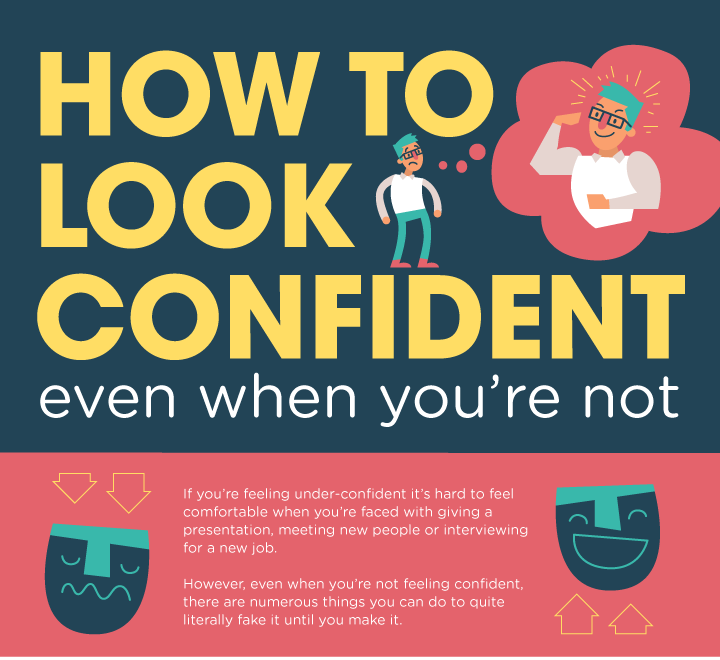
2. Act in the direction of what you want
Setting a goal is 50% of success. But concrete actions are needed to realize our desires. Use the art of small steps in your confidence building work. Don’t rush into big, overwhelming tasks right away – break down the path to your goal into small steps and start with the simplest for you. After completing the first stage, praise yourself for what you have achieved and think about what needs to be done to move on to the next. And so, step by step, you will reach the top of your goal. Each such path traveled is a contribution to your confidence.
3. Recognize your accomplishments
Once you had to make an effort to learn how to ride a bike, get an education, complete your first resume, get a job, increase your income, improve relationships with colleagues. Even if today the accumulated experience and the results obtained seem completely insignificant, it is thanks to them that you have developed certain skills and achieved success.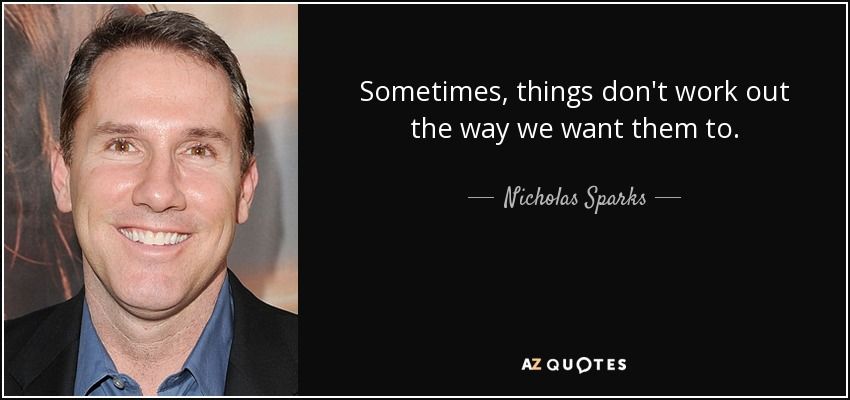 Tracking achievements helps to better understand your strengths and consolidate the positive experience gained, which is the foundation of self-confidence.
Tracking achievements helps to better understand your strengths and consolidate the positive experience gained, which is the foundation of self-confidence.
I offer a fascinating yet profound technique for tracking progress and identifying your own strategy for success.
- Take a sheet of paper (several is better).
- Make a list of your accomplishments (minimum 30). Next to each achievement, describe in detail what actions and skills helped you achieve the result.
- From the resulting list of skills and actions, it will be easy to identify the strategies that dominate and support you.
| Achievements (all successes and achievements in work and life) | My actions (what specific actions led to these achievements) | Skills (what skills / competencies helped in this) 6 903 908 (who or what surrounded during this period) | Emotions (what emotions / feelings did this achievement cause then and now) |
9Do this every year.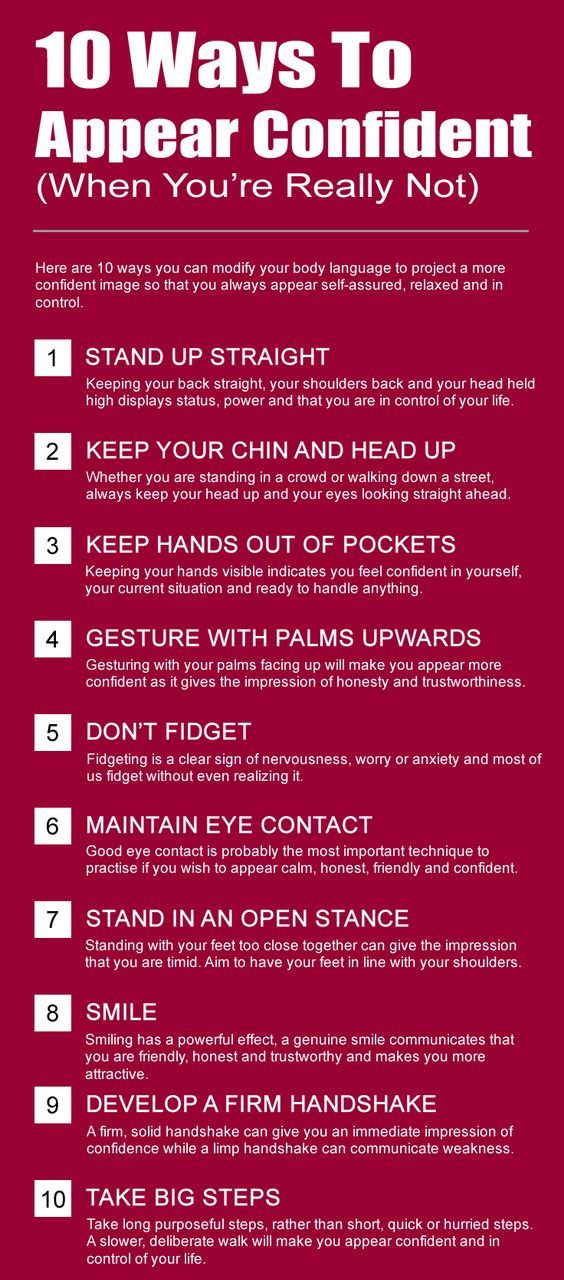 With the accumulated positive experience, your personal assessment of your own actions and efforts will also grow. With the accumulated positive experience, your personal assessment of your own actions and efforts will also grow. 4. Create a supportive environment We all need to know that there is a person who believes in us and will support us in difficult times. Your task is to communicate more with just such people. If there are toxic people in your environment who say that you can’t, you can’t cope, you won’t succeed, minimize, or better yet, completely eliminate communication with them. 5. Use your strengths Build on your strengths in professional development. To do this, you need:
Having studied your features, bet on your strengths, but do not forget to develop the so-called cons in parallel. There are many approaches to identifying your strengths: the DISC behavioral preference model, techniques for identifying value motivators, Adizes' PAEI management styles, your own observations, feedback from colleagues, etc. 6. Find an occupation for the soul Self-realization of a person directly affects the growth of his self-confidence. Find an activity where you will fully realize your abilities and talents. Anything where you will enjoy the process and the result. That will allow you to immerse yourself in what really fascinates you. 7. Keep learning See also👑 Thu 10/31 Career
How to get a badge of honor: 5 years from Yuri Bugai Today, the ability to learn quickly is a core competency of successful people, so make learning new things a habit. Expand and update your knowledge in a familiar area and apply what you have learned to life and work. 8. Exercise and stay healthy Choose the right training format and regimen and pay attention to your health regularly. Firstly, adherence to the daily routine and schedule of physical activity is an achievement in itself, and we already know that this directly affects self-confidence. Secondly, a toned healthy body and a straight posture symbolize a self-confident person. Find something fun to do: cycling, swimming, playing sports, fitness, running, interval walking, dancing, tennis, horseback riding, whatever. 9. Compare yourself today with yourself yesterday Not with someone else, but only with yourself! We live in a material world, where material goods are considered to be the key signs of success. Self-confidence develops the ability to quickly recover from stressful situations. Therefore, pay more attention to what new knowledge and skills you have acquired, what new competencies you have developed, how much you have advanced in relationships with relatives or colleagues, changed your behavior, etc. 10. Love the Change The VUCA period we are living in is experiencing an incredible rate of change on a global scale. The only way to stay afloat in such an uncertain environment is to love change and develop your adaptability to rapidly changing conditions. Therefore, from time to time change something in your life: new approaches, new impressions / sensations, new experiences. See also👑 Wed 05/08 Career
How to test yourself for stress resistance and 6 ways to improve it By gradually introducing new things into your life, you will develop an adaptation mechanism, learn to cope with the stress that accompanies change, and increase your resistance to stress. Pick the items that resonate with you the most and start implementing them on an ongoing basis. And don't forget to rest! We all need periods when we do not think about what we are good at and what else needs to be strengthened, but simply enjoy life. Be successful and true to yourself! Then you are in the right place - we have a lot of vacancies for every taste! Vacancies Read also Personal experience: three stories about working with mentors How to become a leader in a team? Business coach Alexander Sudarkin advises 10 rituals for the right start and end of the working day How to become self-confident: 5 steps to the goal August 9, 2015 Let's be realistic, when was the last time it gave you confidence? Helped to lose weight? Get promoted? No options - NEVER. Share 0Before we dive headlong into building true self-confidence, let's take a step back and try to understand what confidence is. Confidence is the knowledge that what you have will eventually become what you want and make you happier. This is a necessary condition for an idea to become an action.
Statistics confirm that success has more to do with confidence than competence. So here are five steps to self-confidence. 1. Fake ConfidenceStrange as it may sound, the first step in learning to be truly confident is to fake confidence. In the wild, some animals pretend to be brave in the face of danger. Pretend you too. Self-hypnosis does not work. Our brain analyzes and compares our expectations with our experience and real life situation. If these two aspects do not match, the brain gets out of control and you begin to experience stress. Anxiety and negative thoughts appear, due to which all self-confidence disappears. So how can we be? Better prepare for an exciting situation, rehearse in front of a mirror (pay attention to both tone of voice and facial expressions) and look at others positively, enjoy communicating with them. This will give the brain “reason enough” to believe that our positive attitude corresponds to a favorable external situation, and confidence will appear by itself. 2. Remember that you expect more from yourself than others from youThe good news is that the whole world will believe what you show. Thank God, no one can read your thoughts, know about fears and anxiety. Bad news: you can misinterpret any sideways glance, any random word, any reaction of people to your actions, and then worry about this (far-fetched) reason. In this case, psychologists recommend listening to your inner voice (don't get scared ahead of time, no one is going to persuade you to engage in self-hypnosis). Do a little experiment: for one week, write down what thoughts are spinning in your head (exact wording) when you lack self-confidence. By simply recording and analyzing your inner dialogue, you will be one step closer to reducing and hopefully eliminating such thoughts entirely. In addition, it is useful to write down and keep at hand a list of your achievements, experiences, events that made you feel significant, confident, understand that your actions are beneficial. Every time your inner voice gets out of hand, take a three-minute break, pick up a list, and remind yourself how good you can be. Present your brain with tangible evidence when you need extra reassurance. 3. Take care of your physical conditionI understand that it's a cliché to say that you need to take care of your health, but this cliché did not appear out of nowhere. Have you ever wondered why, without exception, all successful leaders regularly go in for sports? If you overwork, eat fast food, sleep little, and lead a predominantly sedentary lifestyle, it becomes harder to show the world the best version of yourself. You don't need to train until you drop for several hours a day: a 30-minute walk from work to home or climbing the stairs to the 10th floor can be enough to release endorphins. Start with small changes in your habitual way of life, gradually get used to them. Difficulties and, accordingly, stress should be added to your life in very small portions. 4. Increase returns, change your internal dialogueDo you know why most people's communication skills leave much to be desired? Because they are in their own thoughts. Instead of focusing on their interlocutor and demonstrating their disposition, they think how not to blurt out nonsense and what would be so smart to say next. The main reason for this behavior: they are poorly prepared. It's almost impossible to be truly confident if you're not prepared enough to show your best side. Think about the people you are talking to. What do they really want? What's stopping them? How can you help them?
Use this method to promote your services or if you want to impress at an event. Spend time researching materials on the topic and your audience. Every hour spent on this activity will bring a disproportionate result. And what happens when you get a positive response? You guessed it, you'll gain lasting, genuine self-confidence. 5. Fail quickly, err oftenA terrifying word that paralyzes even outstanding people and prevents them from achieving success - failure. It especially haunts those who are perfectionists by nature and are chronically afraid of doing something wrong. But failures happen in our lives, it's just inevitable. In fact, if you are not mistaken, then you are not learning anything new. Remember Ramit Seti's saying more often: "It's not a failure - it's a test." You're just checking that it won't work. And when you know this, you can move on and find ways that will lead to the desired result. And most importantly: once you come to your senses after another "failure", you realize that you do not feel empty. |
 Don't fall into this trap. Growth in well-being does not always indicate a high level of self-confidence. Yes, life situations are different.
Don't fall into this trap. Growth in well-being does not always indicate a high level of self-confidence. Yes, life situations are different.  Of course, there are plenty of "experts" around who sell this hackneyed move: just say 50 times "I'm amazing, wonderful and I can achieve anything" and you will immediately become confident as a president. It works? No. So let's talk about methods that really help people gain self-confidence.
Of course, there are plenty of "experts" around who sell this hackneyed move: just say 50 times "I'm amazing, wonderful and I can achieve anything" and you will immediately become confident as a president. It works? No. So let's talk about methods that really help people gain self-confidence. 


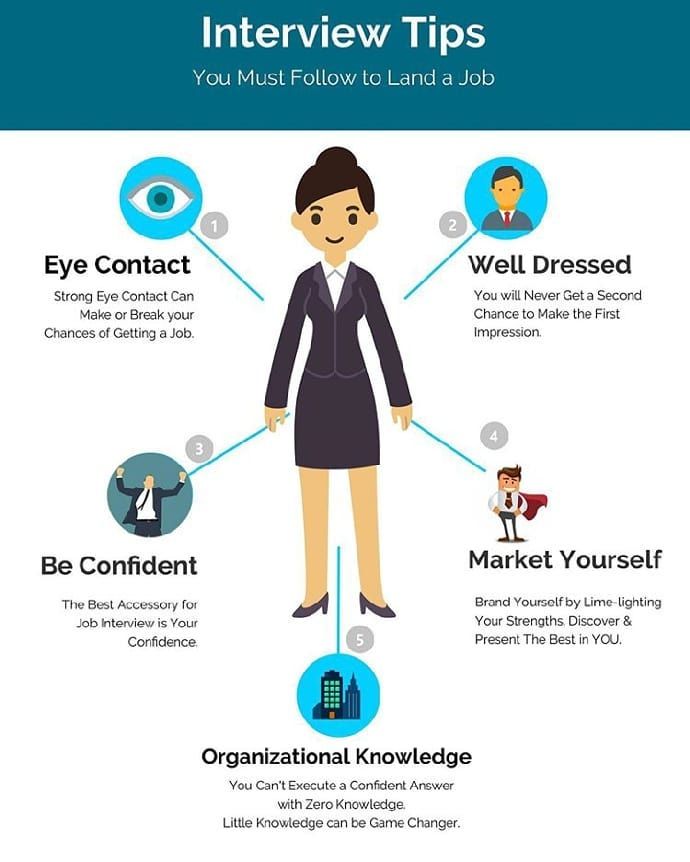 You need to circle yourself around your finger so that both physical and mental health are in balance.
You need to circle yourself around your finger so that both physical and mental health are in balance. 